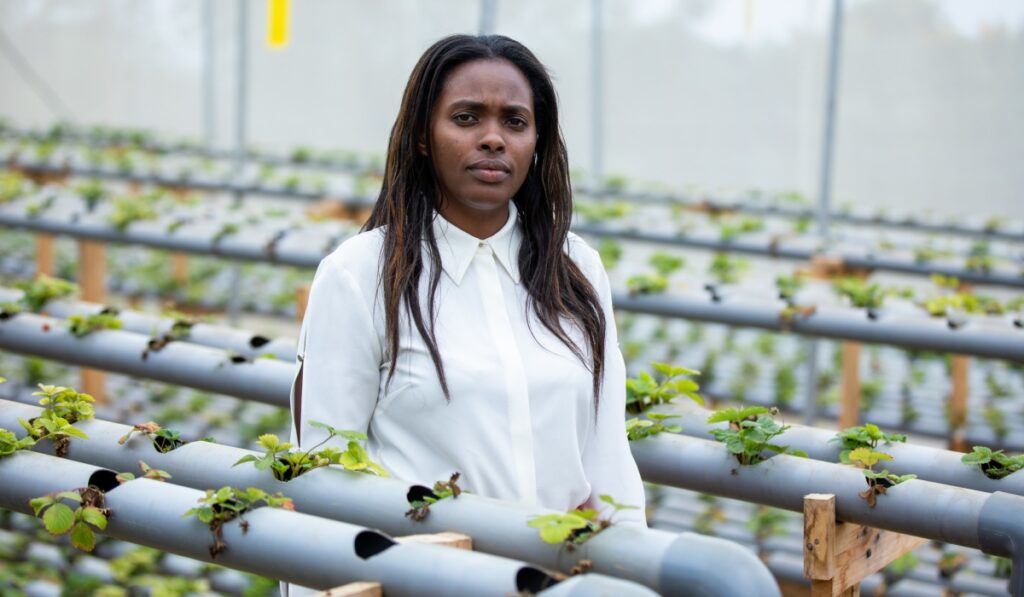Read in
ByHeritier Bahizi
As the world celebrates International Women’s Day, it is worth reflecting on the crucial role that women play inagriculture and the critical need for technology inclusion to promote gender equality in the sector.
With this year’s theme, “DigitALL:
Innovation and technology for gender equality,” there is a renewed focus on the barriers that women face inaccessing digital technologies and the impact it has on their productivity and livelihoods.
The Ministry of Agriculture and Animal Resources has a digital office that is strengthening data systems to,among others, ensure that women are not sidelined in the agri-tech revolution, according to Martine Nezerwa,the Chief Digital Officer for agriculture in the Ministry of Agriculture and Animal Resources.
“The digital office is focusing on strengthening data systems as the key to inclusive and equitable servicedelivery by supporting disaggregation of data not only by gender but also by socio-economic demographics,strengthening equity and equality in agricultural services delivery,” said Nezerwa.
She said that existing systems are supporting access to subsidies on cash and food crops respectively byfarmers, as well as a digital marketplace to help farmers understand and access the best market for theirproduce. “The Digital Bureau is also working with MINICT [Ministry of Information, Communication,Technology and Innovation] and other partners to support comprehensive access to smartphone devices andenhance comprehensive digital learning for smallholder farmers.” she added.
In many parts of the world, women make up the majority of the agricultural labor force, butoften lack accessto vital technologies such as mobile phones and the internet.
The Rwandan Residential Census, released at the 18th National Dialogue Council in Umusikirano on 27February, shows a higher proportion of women than men in agriculture. In August 2022, 77% of womenwere working in agriculture compared to her 58.3% of men.
The World Bank also reports that women make up 40% of the workforce in sub-Saharan Africa, and insome developing countries the share is over 50% of her. As agriculture becomes increasingly digital, it isimperative that women have equal access to these technologies to build a more equitable and sustainablefood system.
Farmer Florence Sifa Sanwa explained how technology has helped her career.
Using her social media, she has been able to share her knowledge and skills with other farmers around theworld and also market her own farm produce.
“I am also using technology to purchase seeds, fertilizers or other inputs through the ‘Smart NkunganileSystem SNS platform,’” she said.
The Smart Nkunganire System is an innovative tool used to connect and empower stakeholders in subsidyprograms for fertilizers, improved seeds, pesticides, mechanization, small-scale irrigation technology andmore. Regarding the problems facing women in agriculture, she said:
“They lack information and cannot afford to integrate technology into practice,” she said.
“Providing loans, grants, or gifts to raise awareness of the impact of agricultural technology on farmerproductivity, making it easier to access IoT devices, and offering feature phones because smartphonesare typically expensive and difficult to use. We will provide more services that are used through
According to the World Food Program (WFP), the need to involve women technically in agriculture is moreimportant than ever as women make up the majority of the agricultural workforce.
As mentioned above, the digitization of agriculture offers a significant opportunity to improve food security,promote sustainable agriculture and enable women to fully participate in the digital economy.



